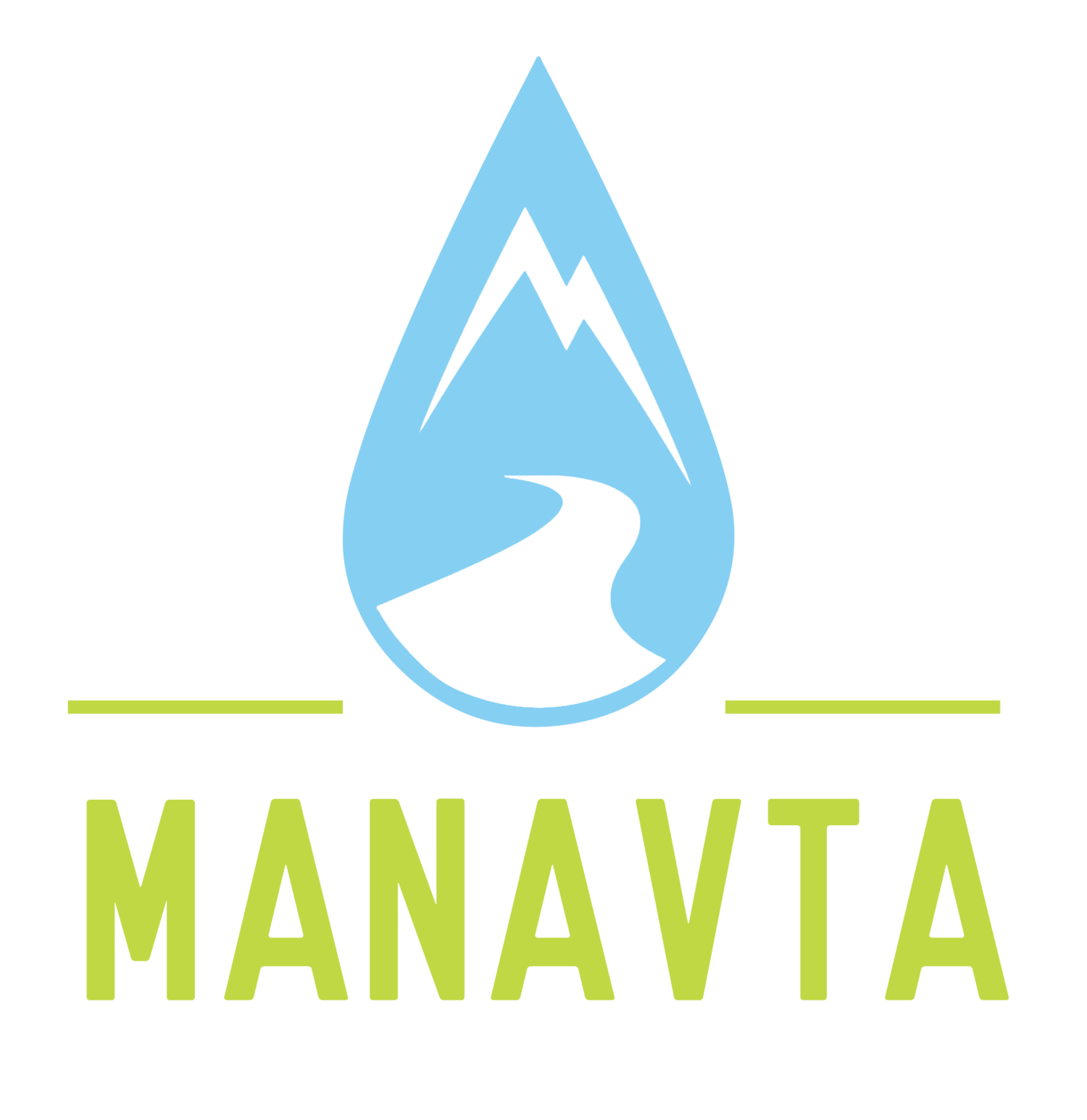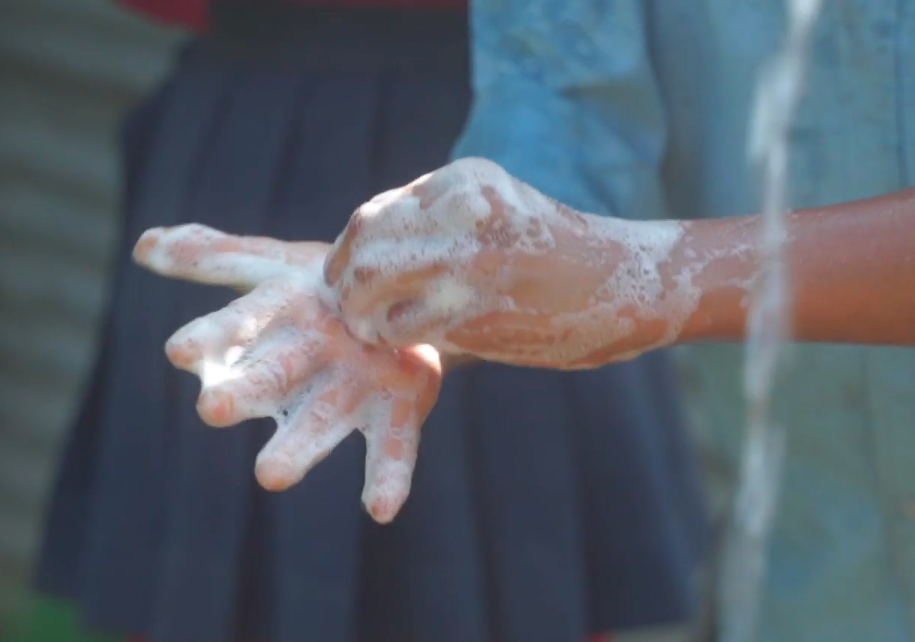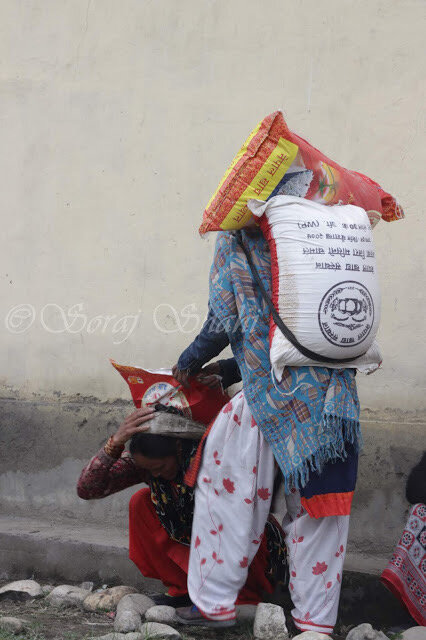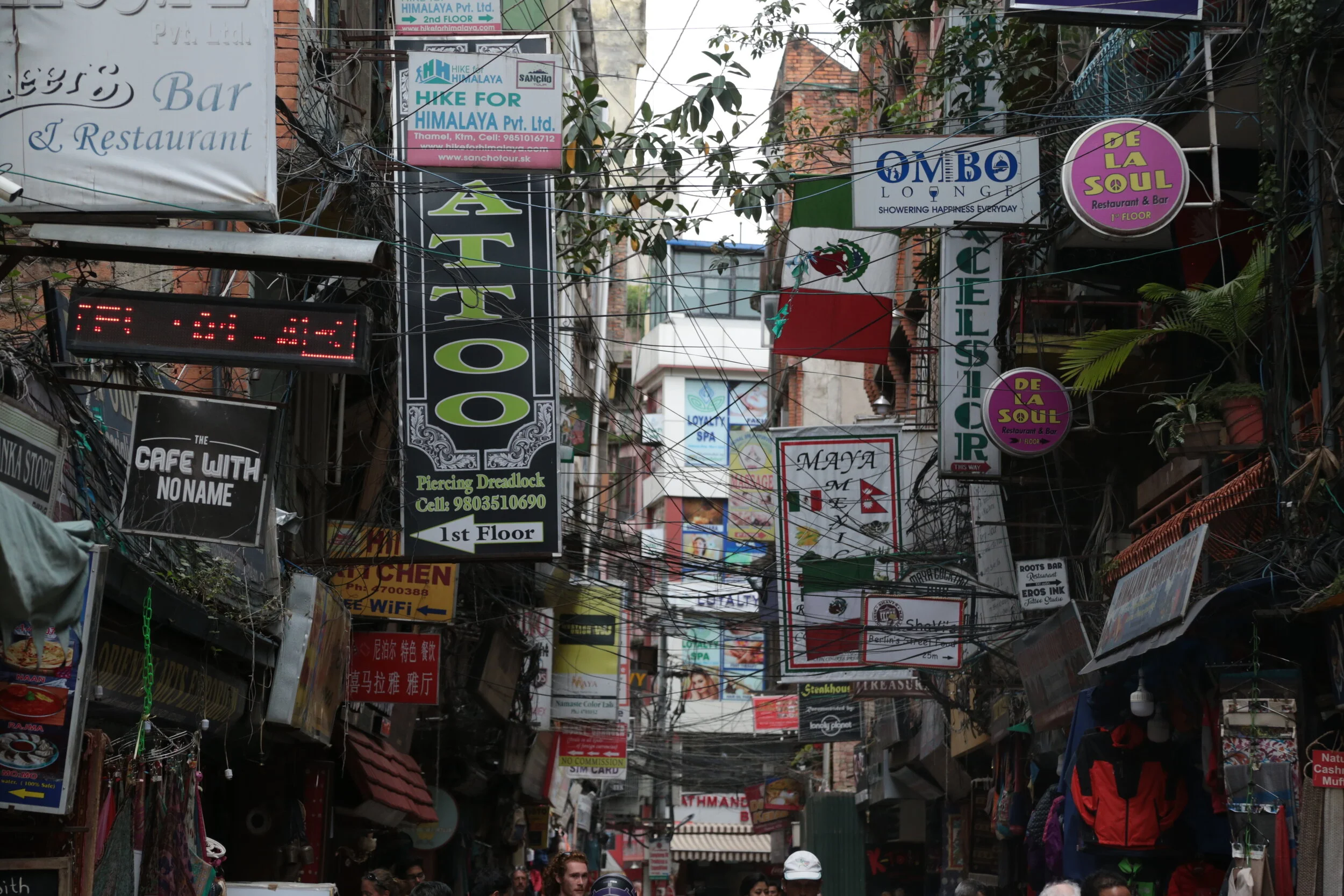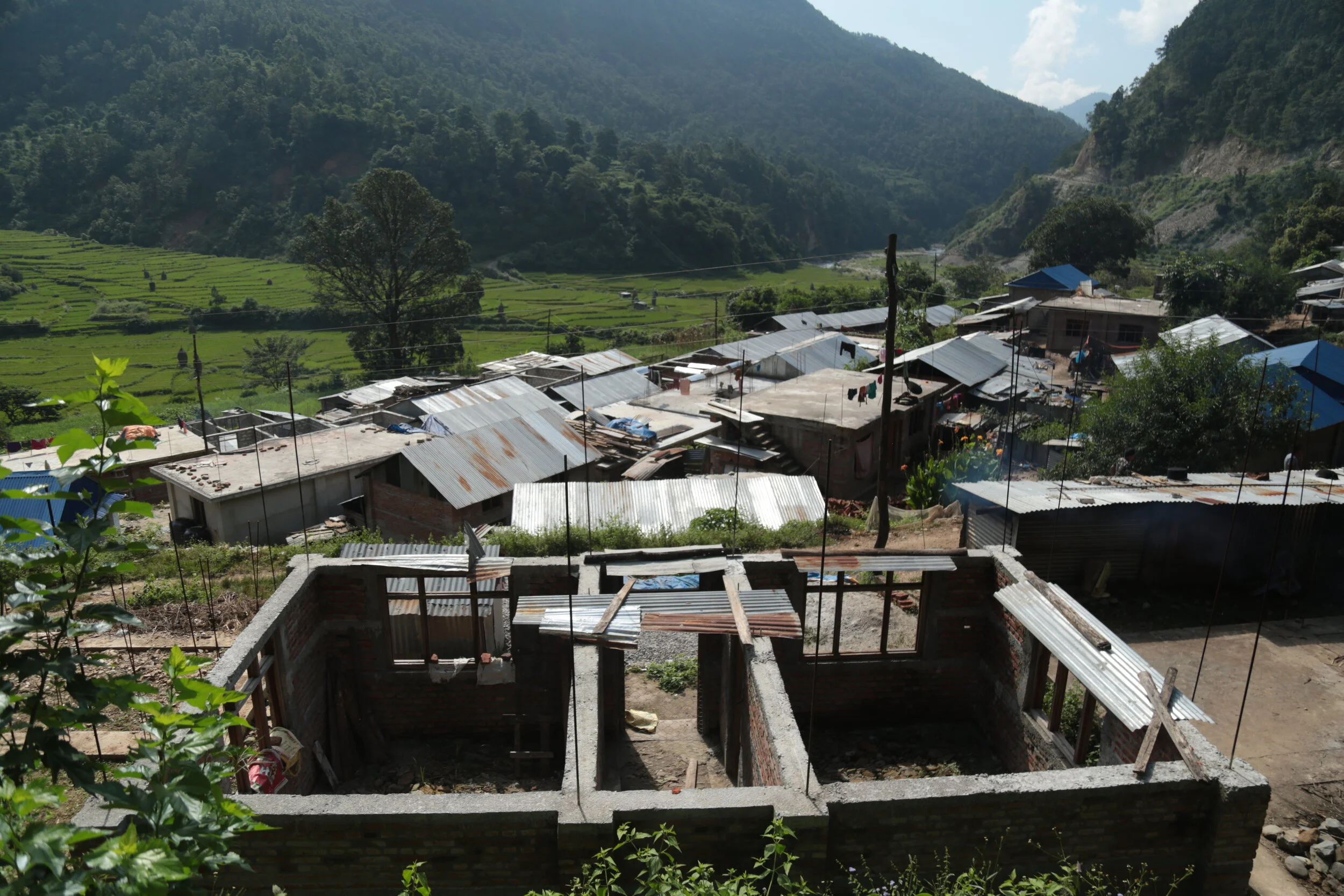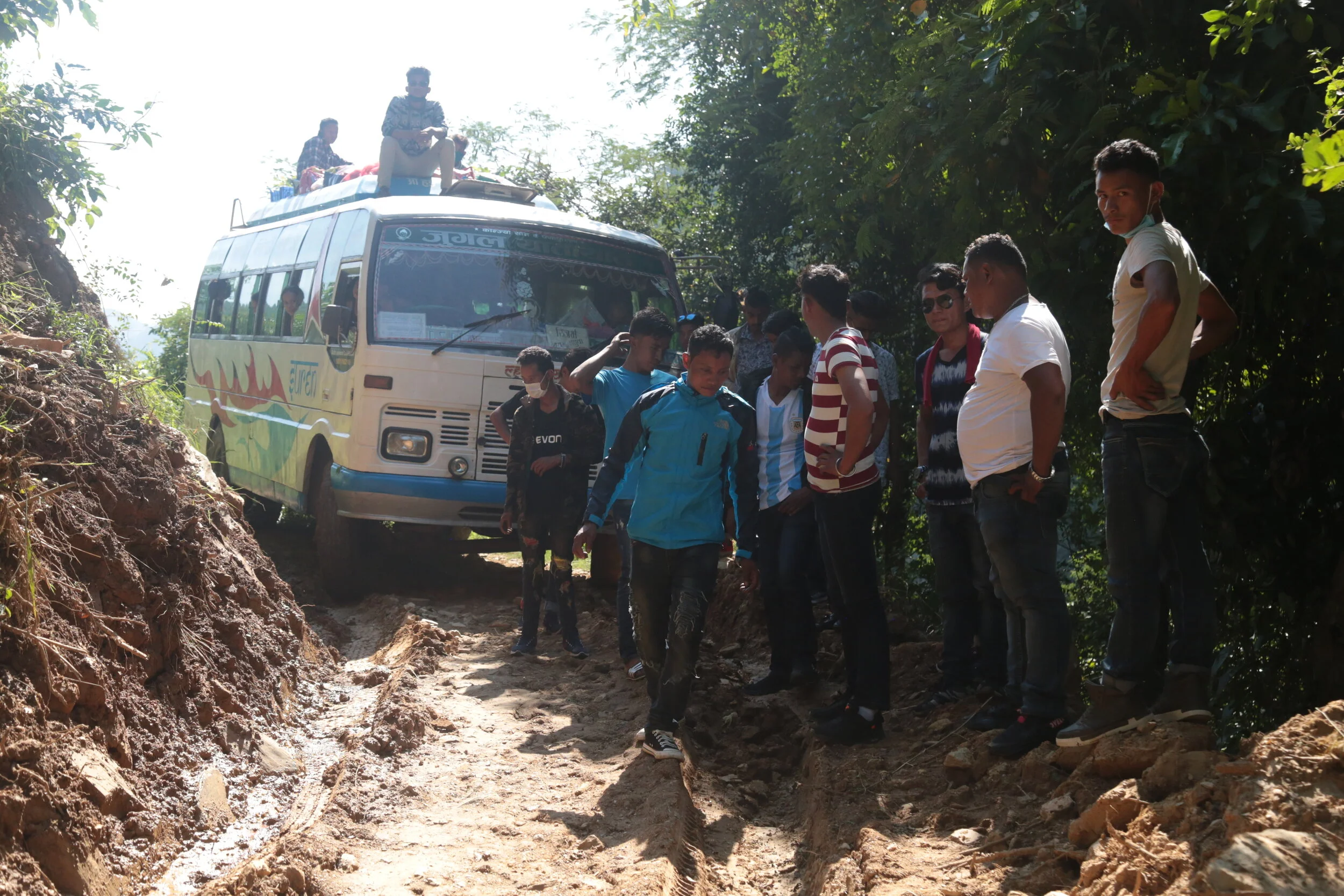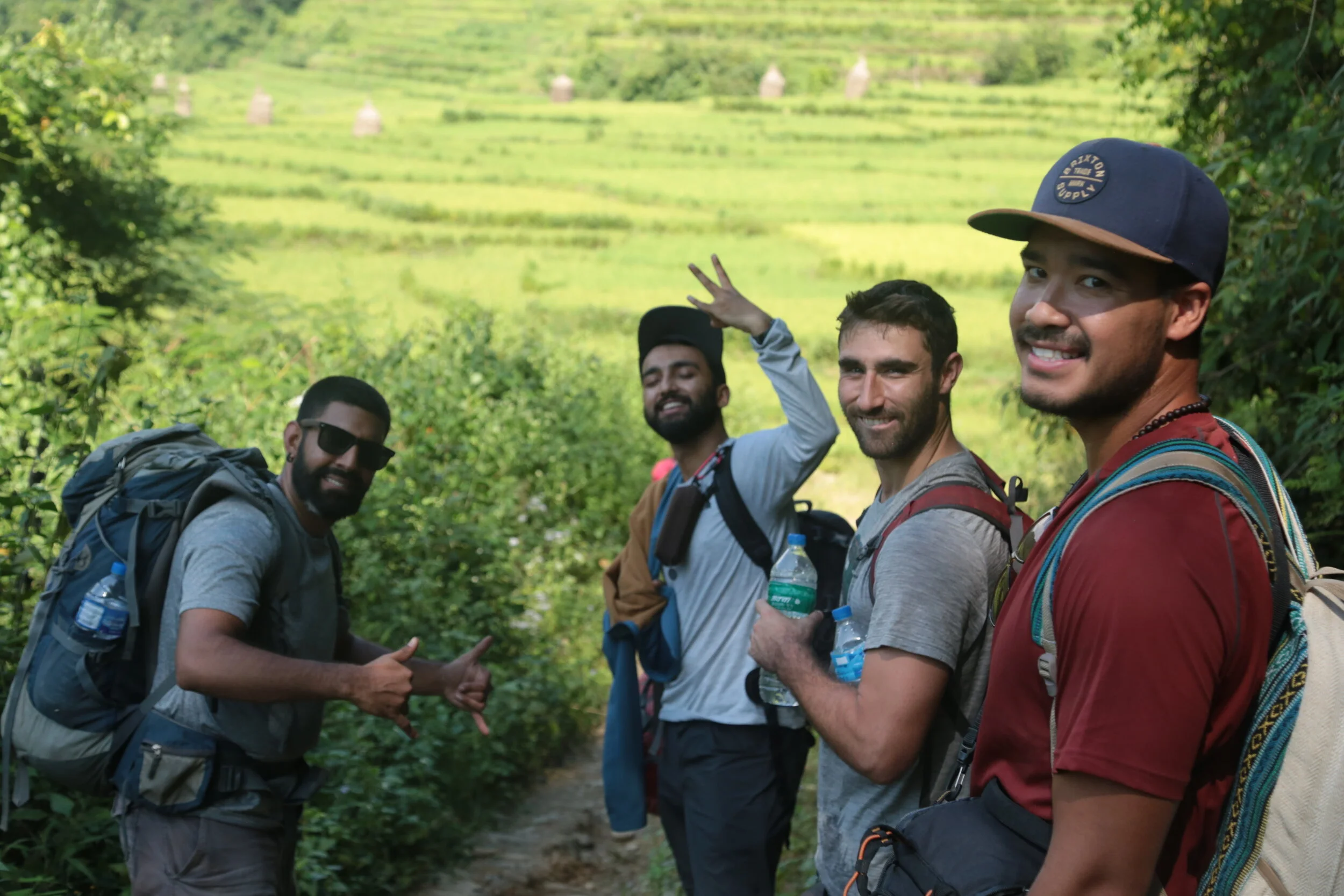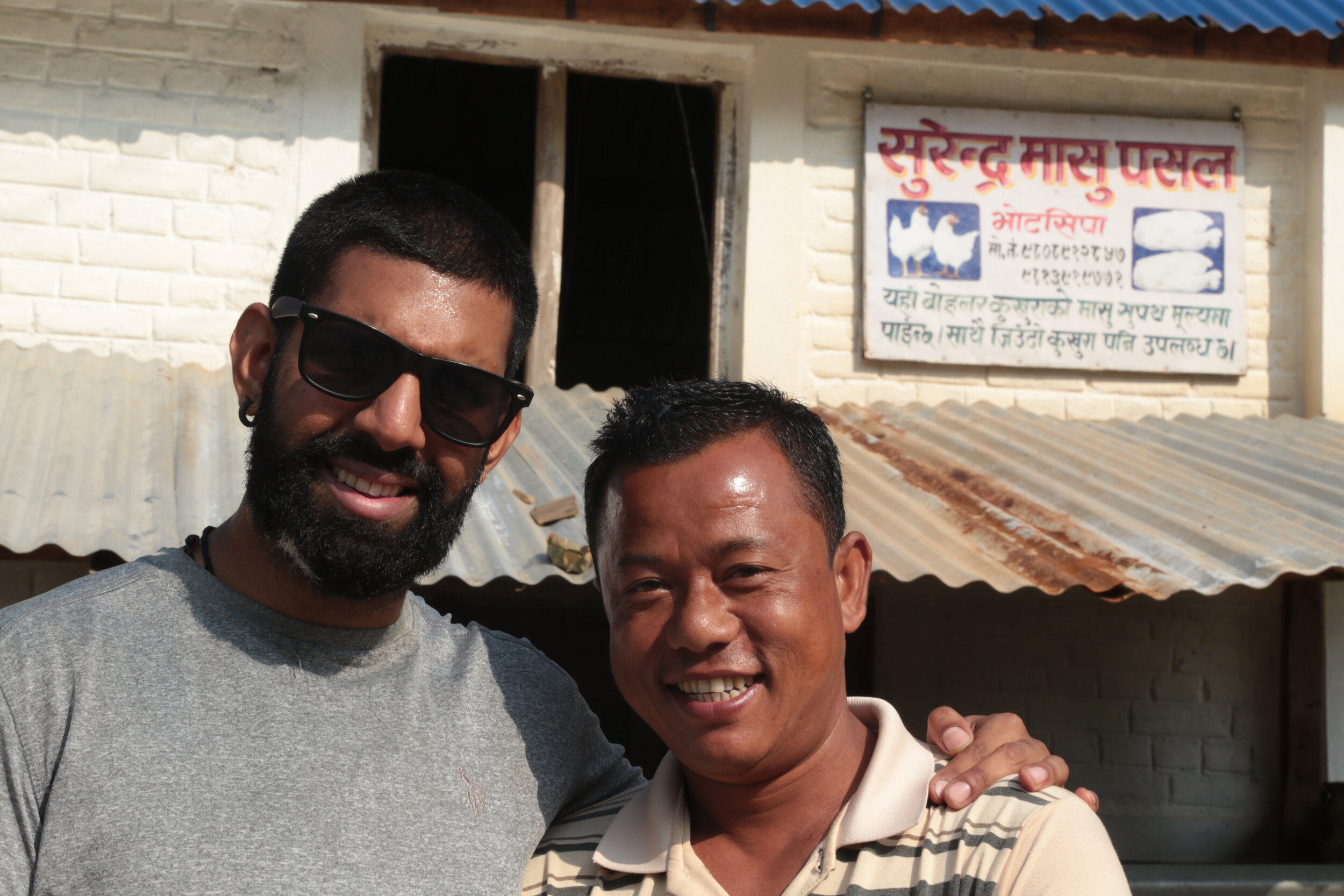
#GIVEASHIT
So critical, not accessible.
Public hand wash station in Thamel, Kathmandu.
As the world swiftly takes measures to slow the spread of the novel coronavirus, engaging in social distancing and frequent hand-washing, experts are still predicting a death toll that could run into the tens of thousands.
Yet we are still among the lucky ones. At least we can wash our hands. Many are unlikely to be able to afford soap, let alone have clean water. As the news headlines have been all about keeping our hands clean, organizations alike must consider what this outbreak means for the worlds poorest. I recently came across a publication by the WHO that outlines the magnitude of this crisis and I’d like to share some key statistics.
THE BREAKDOWN
Roughly 3 billion people, nearly 40% of humanity, almost all in developing nations, lack basic hand washing facilities at home.
47 per cent of schools lack a hand washing facility with water and soap, affecting 900 million school-age children. Thats over one-third of schools worldwide!
16 per cent of healthcare facilities, or around 1 in 6, have no hygiene service. Meaning where patients receive care there is no soap and water at toilets.
District hospital, Mugu Nepal. Photo : Monkia Deuapala, Kathmandu University
REAL TALK
The corona virus will no doubt cause economic and human tragedies. But what this could potentially do to the developing world is over the top. In Nepal for example, around 3 in 10 people do not have access to hand washing with soap and water at home. What is even more appalling especially at a time like this, 54 per cent health care facilities have no access to hand-washing facilities.
While some of us are worrying about stocking up enough paper to clean our bums, some of the worlds poorest nations are bracing for catastrophic consequences if Covid-19 spreads.

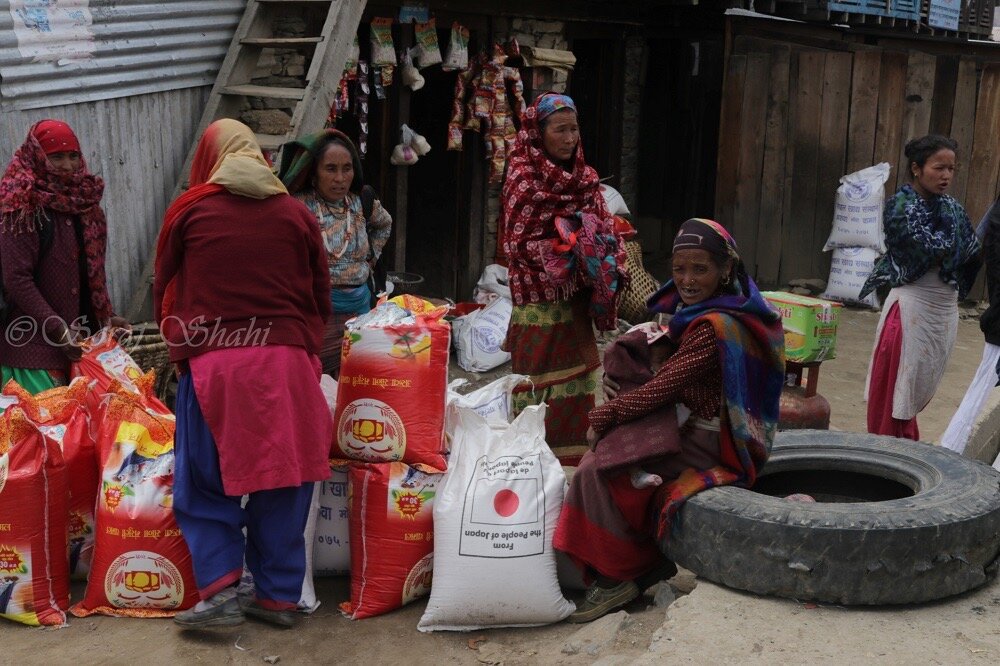

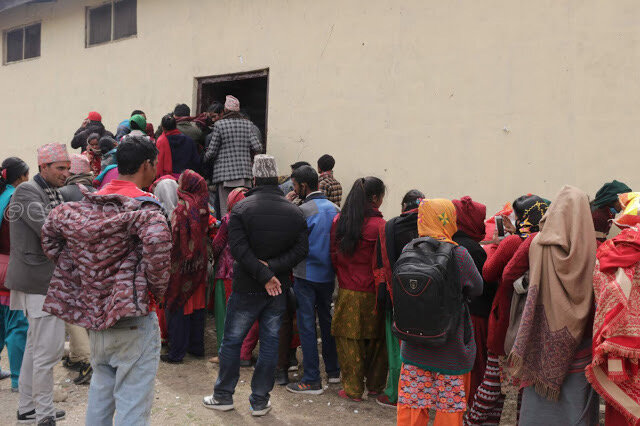
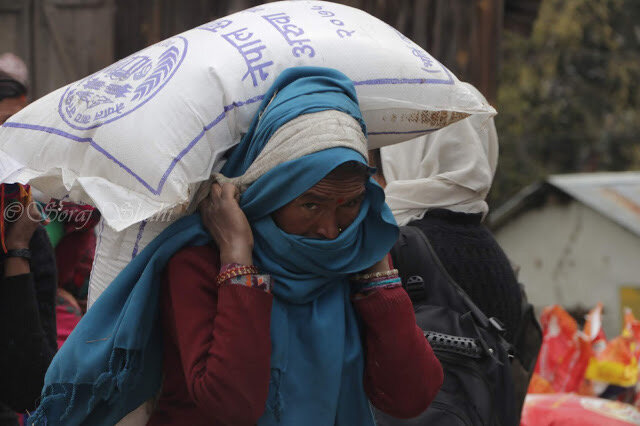
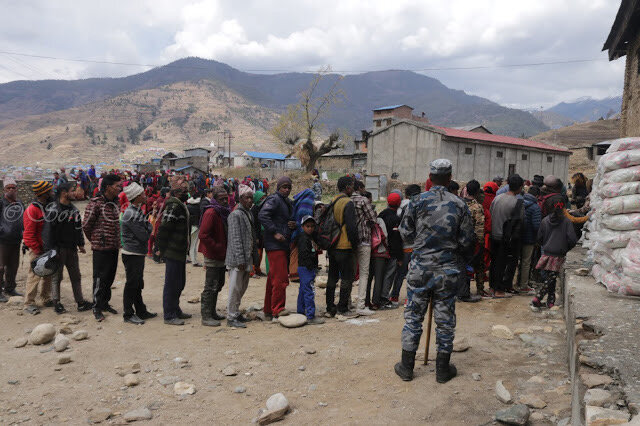
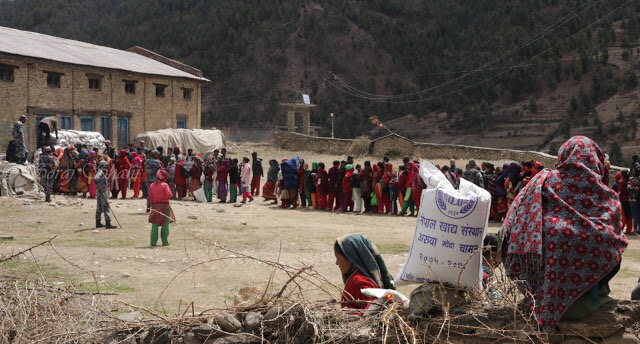
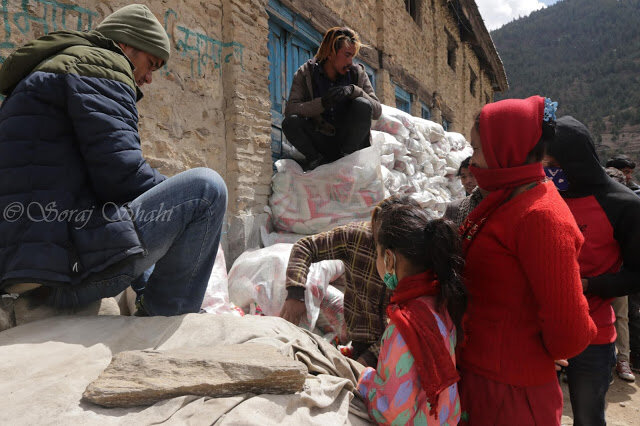
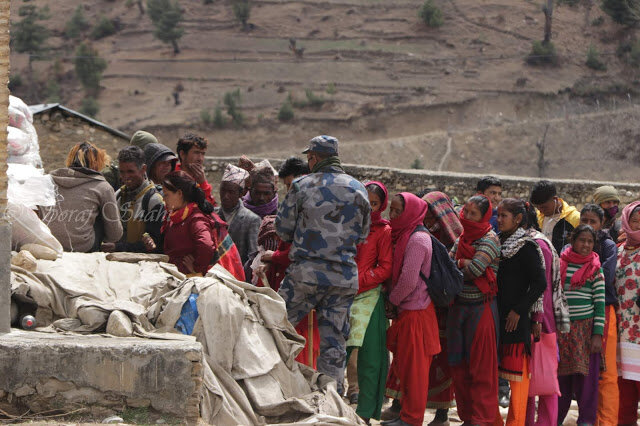

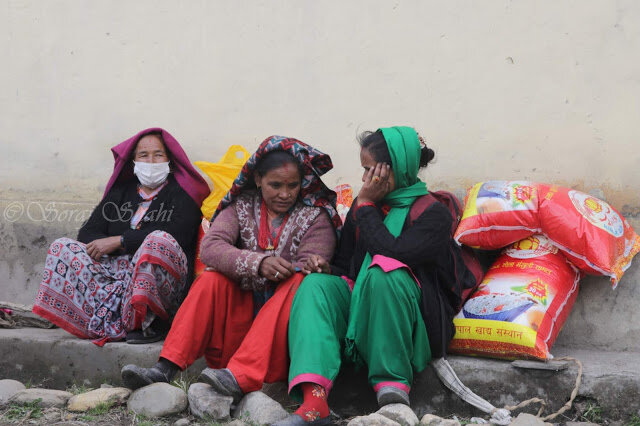
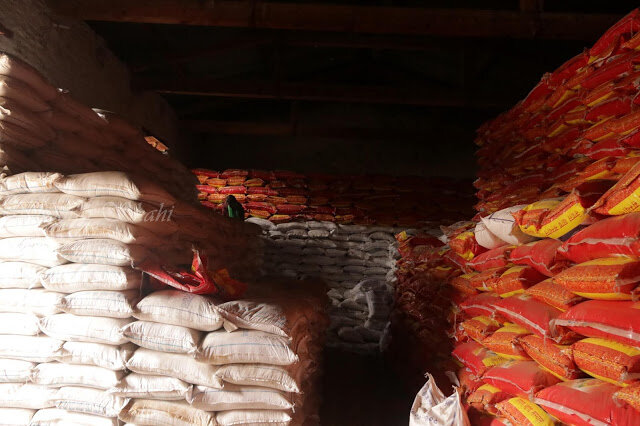
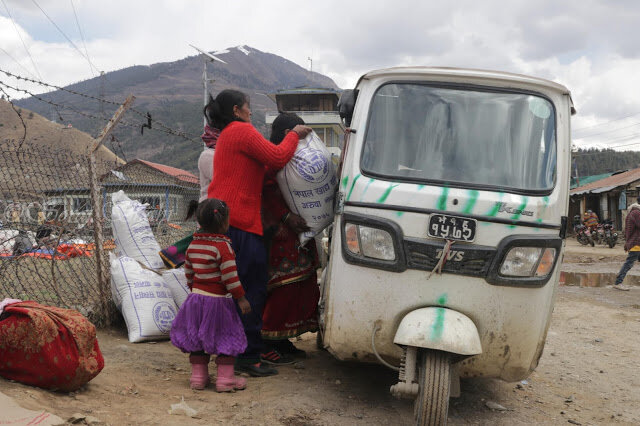

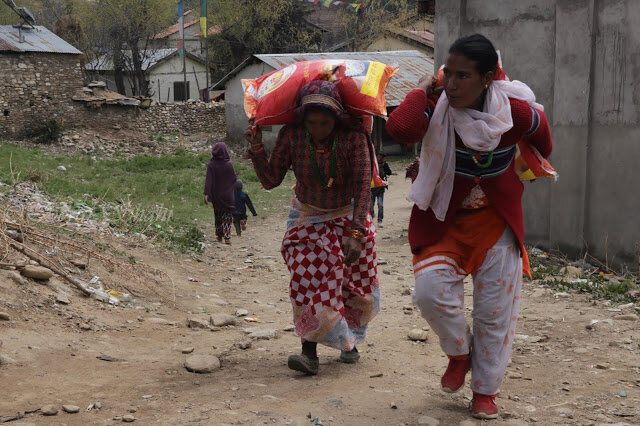

In Jumla for example, people have been lining up preparing for shortages of gas, salt, rice and cooking oil. Rural areas like this in Nepal will face great hurdles moving forward, as transportation and access is difficult. If you have watched any of my travel videos to Jumla, you have seen the crazy roads and amount of time it takes to get to this place. Check out the recent photo essay on the situation in Jumla by Soraj Shahi, a local volunteer with Project Namuna.
NEVER STOP GIVING A SHIT
Jholunge, Sindhupalchowk
At Manavta, we are again reminded about the importance of our work, and are humbled to continue our fight to end open defecation, teach and provide access to hand washing for children and their families, while climbing the hills to reach more communities in Nepal. Global strifes such as Covid-19, bring people from all hemispheres together in a fight of solidarity. But with this we should definitely remember that we are the lucky ones.
Urgent action is needed to ensure people around the world have access to clean water and good hygiene, not just today but every day. Be sure to stay up to date with us on our social media, drop us a line if you want to get involved and check out the Its Time to Give A Shit Campaign to help us reach our goal of getting proper sanitation to over 500 people this year. Stay safe, stay Clean!
A Himalayan New Year
Thamel, Kathmandu
I have been aching to share with you what we’ve been up to over the last few months. For those of you who don’t know me, hello I’m Nabeel. I spend most of my days here in Nepal, and co-founded Manavta back in 2013.
Running a nonprofit has its challenges. For people like those on our team, we do this because we feel it's what we have to do. Having lived in the developing world, I have witnessed my fair share of things that still boggles my mind. In Nepal, for example, I always think to myself about how there is so much beauty in a place so rife with poverty?
The past year brought some new adventures as we revisited Jholunge to gather updates on our project and conduct further research. The highlight though, was being joined by my friends from Canada, Jordan, Mica, Londyn and Rahim, who got to travel a bit of Nepal and see some of the realities I see everyday. I simply felt happy that I could share it with them, hence the shoutout to boys!
Check out some stories created by my friends. - Mica’s short documentary below and Jordan’s blog. Have a look at what they have to say about their experience with us on the field.
The Reality
There’s a reason we started Manavta in the first place. The M word. Menstruation.
First of all, for obvious reasons I have never had a period, so I can’t even begin to understand. But I do know this: young girls are marginalized to the point of forfeiting their education. Imagine not being able to go to school and having to stay home because there is a lack of basic infrastructure, this is something upwards of 1 in 3 girls globally face every month.
Then, there are young women and mothers who are being sexually attacked because they have to go to the toilet outside in the cover of darkness. These are problems people living in poverty have to face every single day. It is simply unacceptable.
What 2020 looks like
Jholunge
In 2016 we built three urine diverting toilets in Jholunge(link to original page) after a devastating earthquake. This community was completely destroyed, and in an effort to help them rebuild with a long term vision in mind, we brought with us the tools to teach them how to build EcoSan toilets. Through educational initiatives and building ecological toilets at the household level, the families we serve are able to improve their standard of living. They are able to reduce their open defecation behaviour, have access to sanitary toilets, as well as recycled wastes that farmers can use as fertilizer in agriculture, saving money and improving soil fertility. After 2 years of monitoring the toilets, the application of the wastes on local crops and taking into account user feedback, there is a desire to reach more people within the area.
Jumla
In February 2020 we will be expanding our work to the remote mid-western region of Jumla. After completing some research last November, we will be working with Namuna Primary School. This project will benefit over 250 students and our advocacy initiatives will reach over 100 more community members. The majority of students (80%) at this school are from the Dalit community, a highly marginalized caste in Nepal. Though the caste system has been politically “abolished”, their marginalization still remains and opportunities for students in the community are seldom. This project goes beyond just toilets! It will not only create safe sanitation, but it will also allow this community to have a school in which their children can flourish, grow and have a decent education.
How you can help
Our success starts with the people who support us, and over the years we have connected with hundreds of motivated shit disturbers dedicating time, money, expertise and today we need your continued support. We recently started a crowdfunding campaign and are looking to raise the funds necessary for these two projects. I invite you to have a look at the page, check out our awesome video and share the story with your networks. For more information please click the button below or follow us on instagram to keep up to date with what we are up to on the field.
